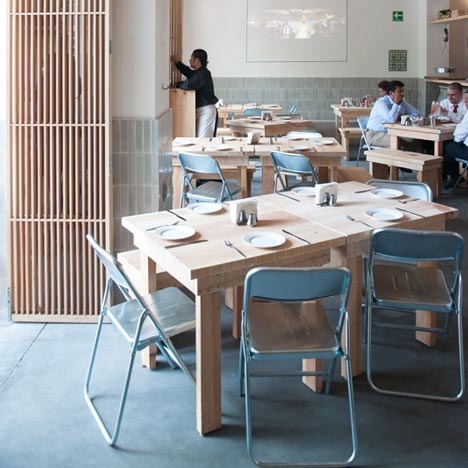A few weeks ago I asked why Mexican restaurants are so often decorated like 19th century ranch homes when Mexico is a living, modern culture. Such decor perpetuates the lie that traditions are preserved in amber, when, in fact, they are preserved by usage and adaptation.
La Surtidora Abarrotera Mercantil “Julio Gabriel Verne” is the old-timey sounding name of a new restaurant which serves the most traditional and basic Mexican dishes as they are meant to be experienced: in the present.
It is, not surprisingly, located in Mexico.
While its quirky name and spare decor are just as affected as that of a restaurant named after a colonial-era landmark and decorated with hand-wrought ironwork, the social and political implications of its affectations are very different.
We use the word “nostalgia” to refer to a temporal longing – the desire to go back in time – but the root of “nostalgia” means literally a pain for returning home; from whence we came. It is an understandable desire: to undo the passage of time is to escape our certain fate: change, death.
Life is thus a journey away from our origins, away from sameness, towards difference and disruption. As much as we may want to end up where we began (an odyssey) the very journey transforms us – just as entropy and others will have transformed whence we came.
People have many reasons for becoming a steward of tradition – whether by preserving a recipe or a relic – but such traditionalism does a disservice to the very roots it seeks to preserve when it denies them a chance to grow, branch out and bloom anew.

